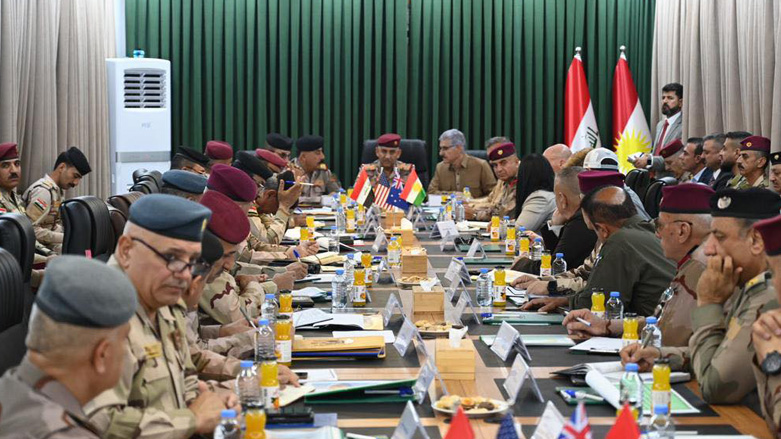Supported by Iraqi air support, Kurdish Peshmerga, army conduct anti-ISIS operations

ERBIL (Kurdistan 24) – Top commanders from the Kurdistan Region’s Peshmerga forces and the military on Tuesday agreed to increase the joint operations against the remnants of ISIS in the disputed areas with the support of the Iraqi air force.
A senior Iraqi military delegation, consisting of top commanders from Joint Operations Command, on Tuesday, arrived in the Kurdistan Region’s Sulaimani and met with Kurdish Peshmerga commanders in the presence of members of the US-led coalition forces.
The top military officials discussed conducting joint operations against the so-called Islamic State remnants, whose self-styled caliphate was toppled by the Iraqi and Kurdish forces with the Coalition’s air support.
However, the militants had lost 40 percent of the land they used to control, and the terror group is still capable of launching a low-level insurgency against civilians and the security forces, according to the Coalition and the country’s security assessments.
The officials agreed to deepen the cooperation at all levels, including at the very junior units of the forces, Mardan Chawshin, the Kurdish commander of the Hamrin-Qaratapa front in Diyala province, told Kurdistan 24 on Tuesday.
The Iraqi air force, which regularly conducts airstrikes against alleged ISIS positions in northern and western parts of the country, will provide support to the Kurdish and Iraqi forces on the ground, according to Saleh Hadhar, the commander of the 8th Infantry Division of the Iraqi army, told Kurdistan 24.
To curb the rising hit-and-run attacks of the terror group, Erbil and Baghdad previously agreed to form two joint brigades planned to be deployed in what is referred to as a “security vacuum” between the forces.
Following the offensive of Iranian-backed militia forces and Iraqi forces in October 2017 on the disputed territories and ousting the Kurdish Peshmerga forces, the security vacuum had widened.
